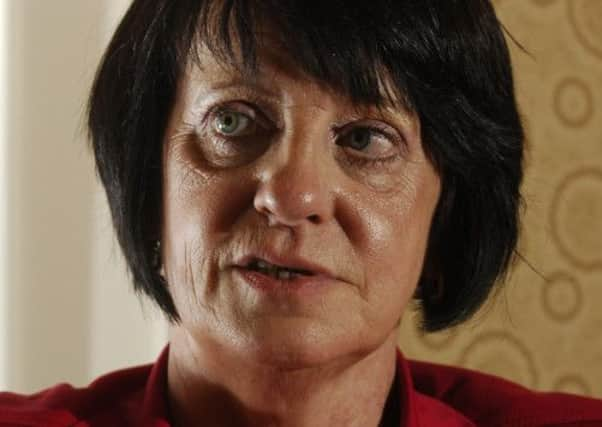Fine schools for excluded pupils says top official


In a new report, Dr Maggie Atkinson said that thousands of children are being sent home without proper records being kept.
Pupils are being illegally excluded for repeatedly disrupting lessons or “clowning in the classroom”, and in some cases for having an inappropriate hairstyle or school uniform, she warned.
Advertisement
Hide AdAdvertisement
Hide AdThe new study, based on research, school visits and a teachers’ survey, examined the scale and nature of illegal exclusions in England’s schools.
It estimates that illegal exclusions are affecting thousands of children in hundreds of schools, and condemns the practice as a “source of shame to the education system”.
Although evidence shows that informal exclusions are not the norm in England’s schools, there are an “unacceptably large proportion” who are acting illegally, the Commissioner’s report says.
In some cases schools are failing to follow the correct procedures to record exclusions, others are placing pupils on “extended study leave”, reduced timetables or moving them into alternative schooling to remove them.
Advertisement
Hide AdAdvertisement
Hide AdSome are encouraging children to stay away, or urging parents to educate them at home or find another school, the report says, and a number are sending home children with special educational needs if their carer or teaching assistant is unavailable.
The report estimates that around 6.7 per cent of schools have sent students home for disciplinary reasons without recording it – this equates to around 1,600 schools across the country – while around 540 schools have recorded a pupil as absent, or being educated elsewhere, when the child has been encouraged not to come to lessons.
Dr Atkinson calls for an end to the practice and recommends tough sanctions are imposed on schools and headteachers who illegally exclude children, including the threat of fines or legal action.
Her report says that where a child has been illegally excluded for a month, either continuously or through short-term exclusions, then “the school should have a financial penalty imposed equal to the amount of funding it receives for that child annually”.
Advertisement
Hide AdAdvertisement
Hide AdThe report also says that it is a criminal offence to falsify records, and that schools found to have done so to hide an exclusion should be dealt with accordingly.
Dr Atkinson also added: “There’s some evidence in the report and there is some evidence when we have done fieldwork that there are discriminatory practices at work. There are some children and young people who will have been excluded on the basis of their hairstyle or other physical characteristic that are pertinent to some communities that break the school dress code.
“Rather than being properly formalised and paperwork completed a child is sent home until it grows out or the pattern cut into the shaved head has grown through or the hair dye can be reversed.”
She added: “Formal or informal exclusions on the basis of a hairstyle should not be happening anyway.”
Advertisement
Hide AdAdvertisement
Hide AdDr Atkinson advocated teaching disruptive pupils in small groups, saying they have seen evidence of this working well.
Brian Lightman, general secretary of the Association of School and College Leaders (ASCL) said: “Where students’ education is being compromised by illegal exclusions, this is wrong and should be addressed swiftly, but it needs to be looked at as part of a bigger picture. As the report states, the vast majority of schools act within the law. This is backed up by Ofsted inspections, which show that in secondaries across the country, grades on behaviour, including judgments on how exclusion is used, are stronger than any other aspect.”